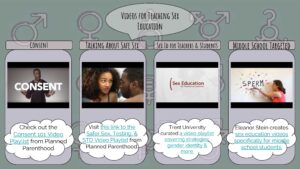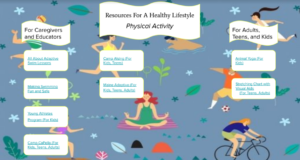Toolkits and Training Modules
We are pleased to share our first toolkit and training module in 2021 as we build our capacity to support Maine families living with autism. Check back in the coming months as we add new resources for your family.
Connecting FACES in Maine: Addressing Racial Disparities in the Education of Black Students on the Autism Spectrum
Fostering Advocacy, Communication, Empowerment, and Supports for African American Families of Children with Autism is our newest online training module designed for families and professionals. In this training module, Dr. Jamie Pearson provides participants with foundational knowledge about disparities that exist among minority students with Autism, and shares strategies to help support parents and educators identify appropriate services and supports for minority children with Autism. By completing this module, participants will learn more about Autism and the characteristics of autism, identify appropriate services and supports for working with minority children with Autism and their families, learn about strategies for working with children with Autism, and develop a plan to ensure equity and access to appropriate services and supports.
This online FACES training module is recommended for families and professionals who support minority families impacted by autism. This module is offered free, but registration is required. You will receive your login information within 1-2 business days after registering.
Speaker Bio: Dr. Jamie Pearson is an Assistant Professor of Special Education in the Department of Teacher Education and Learning Sciences at North Carolina State University. Dr. Pearson’s areas of research include investigating disparities in the diagnosis of autism and access to services for minority families and assessing the impact of parent-advocacy and empowerment training on family dynamics and child outcomes.
PEERS® Friendship Skills Boot Camp
 In this self-paced training module, Dr. Sarah Howorth presents the PEERS® Friendship Skills Boot Camp. Participants will be presented with targeted social skills through didactic instruction and role-play demonstrations. Opportunities are provided to practice the social skills independently and with behavioral rehearsal exercises. Dr. Howorth discusses several social skills topics including how to find a source of friends, the skills needed to have a conversation, how to start a conversation, and how to enter a group conversation.
In this self-paced training module, Dr. Sarah Howorth presents the PEERS® Friendship Skills Boot Camp. Participants will be presented with targeted social skills through didactic instruction and role-play demonstrations. Opportunities are provided to practice the social skills independently and with behavioral rehearsal exercises. Dr. Howorth discusses several social skills topics including how to find a source of friends, the skills needed to have a conversation, how to start a conversation, and how to enter a group conversation.
This online social skills training module is recommended for families and professionals who support teens and young adults with autism. This module is offered free, but registration is required. You will receive your login information within 1-2 business days after registering. Note: If you register for this training before April 23rd 2021, you will receive your login information when the Boot Camp launches.
Register for this training module using our easy online registration for Virtual Friendship Skills Boot Camp.
Click here to learn more about the PEERS® Lab at UMaine.
Sarah Howorth, Ph.D. is an assistant professor of special education and program coordinator for the special education graduate programs in the School of Learning and Teaching, within the University of Maine College of Education and Human Development. Her research interests include social skills and social coaching of individuals with autism and use of emerging technology such as virtual reality and augmented reality to support behavioral, academic and skills instruction for individuals with disabilities. She also has expertise in the following areas: assistive technology, reading comprehension, positive behavior interventions and supports, and improving employment and transition outcomes for individuals with autism and intellectual disabilities.
Sexuality Education Toolkit
 Teaching children about sensitive topics such as private body parts, changes during puberty, and healthy relationships can be difficult for a parent of any child, but for families that include a child on the autism spectrum, there are special concerns and sometimes the need for specially developed tools to introduce topics and begin conversations. MAIER’s graduate assistant, Taylor Roos, has developed a new graphic resource especially for families, educators, and support personnel to direct you to research-supported tools and information for sexuality education.
Teaching children about sensitive topics such as private body parts, changes during puberty, and healthy relationships can be difficult for a parent of any child, but for families that include a child on the autism spectrum, there are special concerns and sometimes the need for specially developed tools to introduce topics and begin conversations. MAIER’s graduate assistant, Taylor Roos, has developed a new graphic resource especially for families, educators, and support personnel to direct you to research-supported tools and information for sexuality education.
MAIER’s Sexuality Education Resource will link you to a variety of resources, all in a handy graphic to lead you through topics and conversations, many specifically developed for families of children, teens, and young adults with special learning needs. Check out this new resource, which includes links to helpful videos, visual supports, curricula, and toolkits, then share with others to help spread the word!
[View and/or download Sexuality Education Resource here]
Healthy Lifestyle Toolkit
 Getting a sufficient amount of quality sleep, meeting your body’s nutritional needs, participating in physical activity, and understanding physical and mental self-care can all contribute to increased emotional, physical, and mental well-being and are all parts of living a healthy lifestyle. Teaching how to achieve and maintain a healthy lifestyle can often be challenging for parents, and caregivers and individuals searching for answers to their own questions are often unable to find meaningful materials.
Getting a sufficient amount of quality sleep, meeting your body’s nutritional needs, participating in physical activity, and understanding physical and mental self-care can all contribute to increased emotional, physical, and mental well-being and are all parts of living a healthy lifestyle. Teaching how to achieve and maintain a healthy lifestyle can often be challenging for parents, and caregivers and individuals searching for answers to their own questions are often unable to find meaningful materials.
The Healthy Lifestyles Toolkit, developed by Sara Hunt, a recent UMaine graduate in Child Development & Family Relations, explores a myriad of resources befitting for parents, caregivers, educators, kids, teens, and adults! Within the toolkit, you’ll find direct links to social stories, strategies, training videos, and more pertaining to physical activity, nutrition, sleep, hygiene, and social/emotional wellness.

